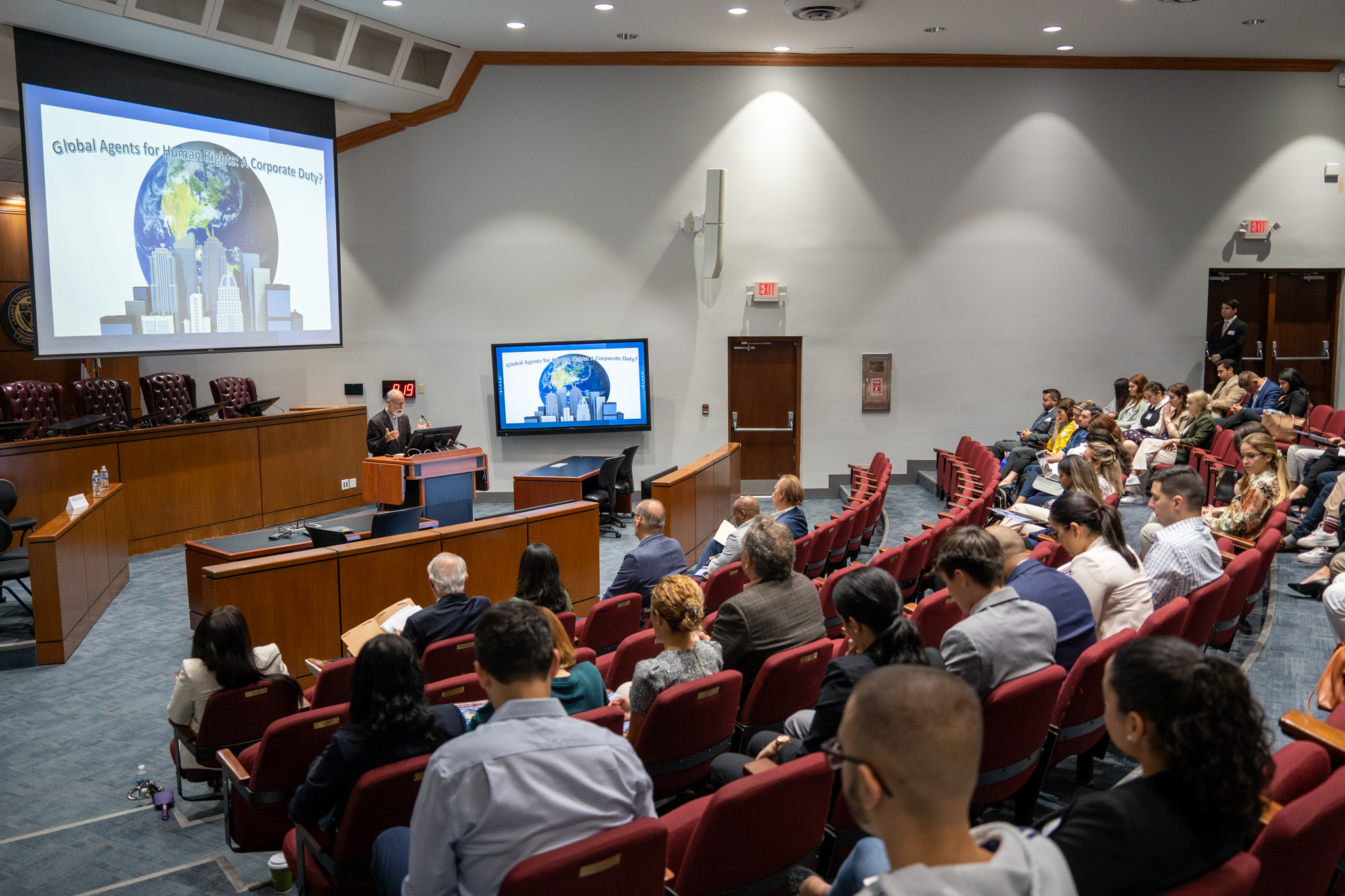
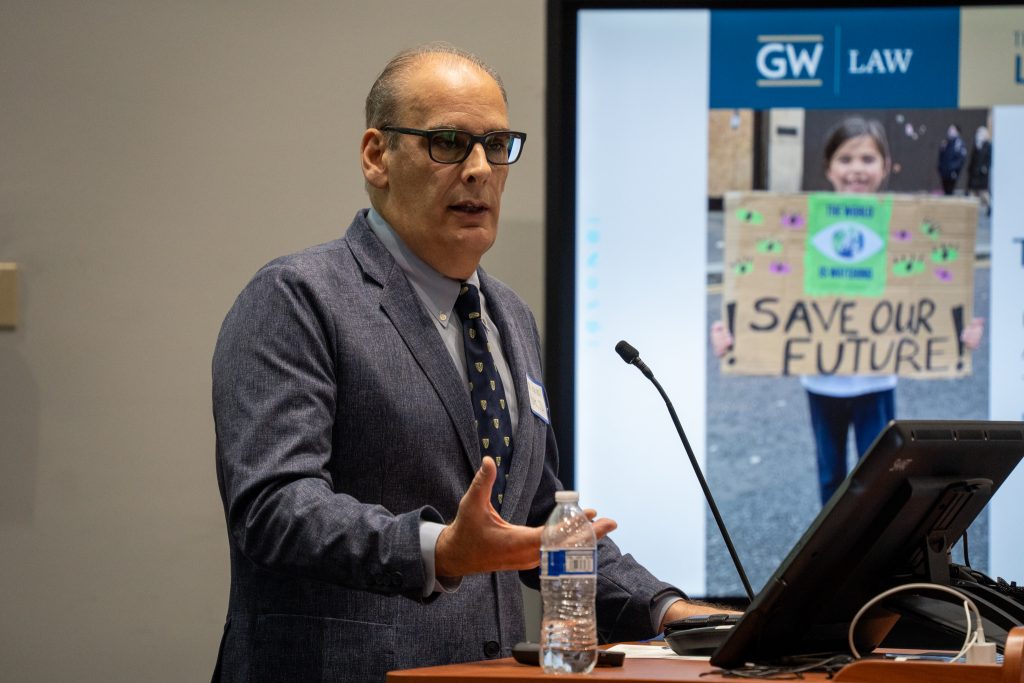
On October 21st, The Intercultural Human Rights Law Review held its annual symposium, titled Global Agents for Human Rights: A Corporate Duty?, featuring two panels of experts. The symposium focused on identifying the core issues that exist between transnational corporations and various national jurisdictions in the field of human rights, and it explored prospective solutions, including the desirability of adopting laws and compliance review by transnational corporations.
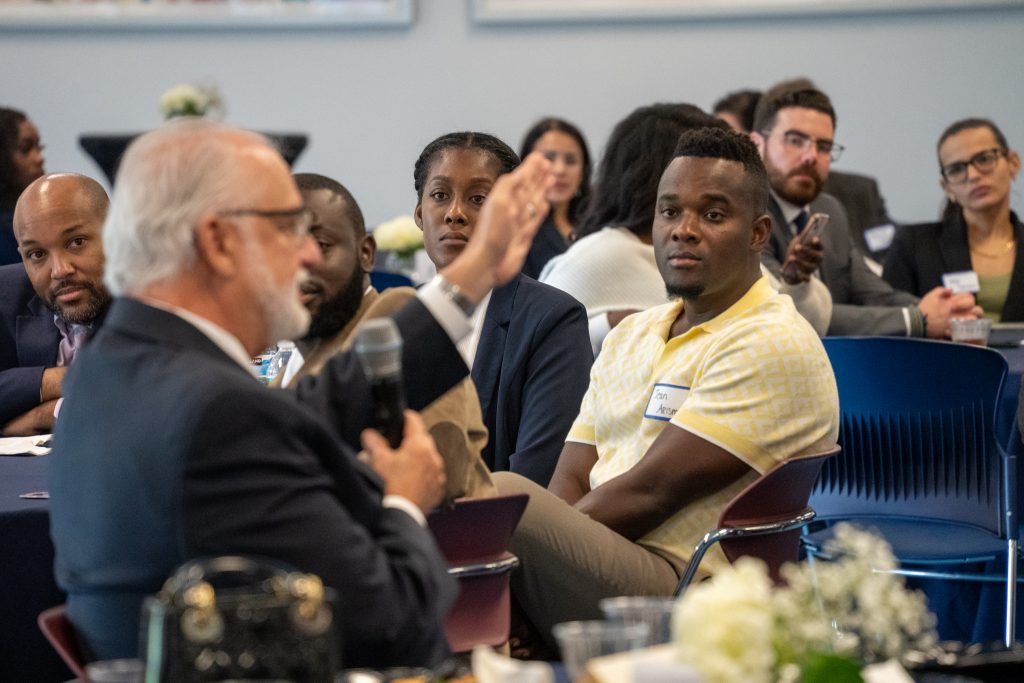
Dean Todd J. Clark, Senior Associate Dean for Academic Affairs, moderated the first panel. Professor Randall Abate, Assistant Dean for Environmental Law Studies at George Washington University Law School, kicked off the panel with a talk on climate washing and corporate accountability. Attorney Pedro Freyre, Esq., Chair of International Practice at Akerman LLP and Adjunct Professor at the University of Miami Law School, spoke about corporate players and human rights compliance.
The second panel was moderated by Professor Siegfried Wiessner, Director of the LL.M./J.S.D. Program in Intercultural Human Rights and Faculty Advisor of the Intercultural Human Rights Law Review. In this panel, attendees heard from Tran Che, J.D., Executive Counsel-Head of Human Rights at General Electric, who discussed the role of global human rights counsel at GE, and Olayinka Reis, LL.M. graduate and J.S.D. Candidate of our Intercultural Human Rights program as well as Compliance Professional at McKinsey & Company, who shared some of the best practices of transnational corporations in the global supply chain.
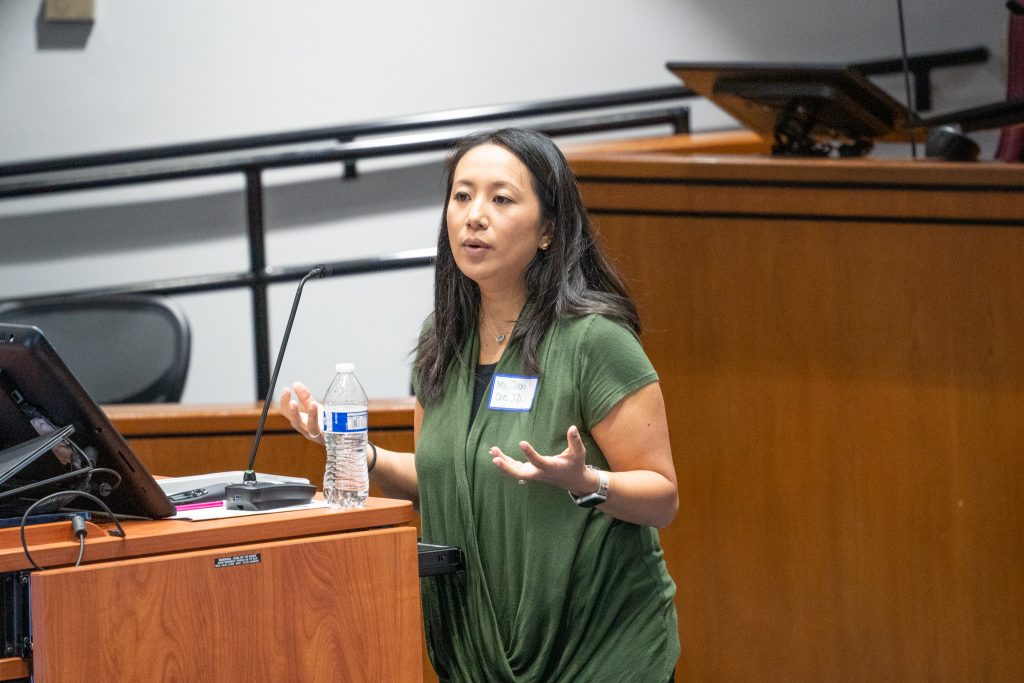
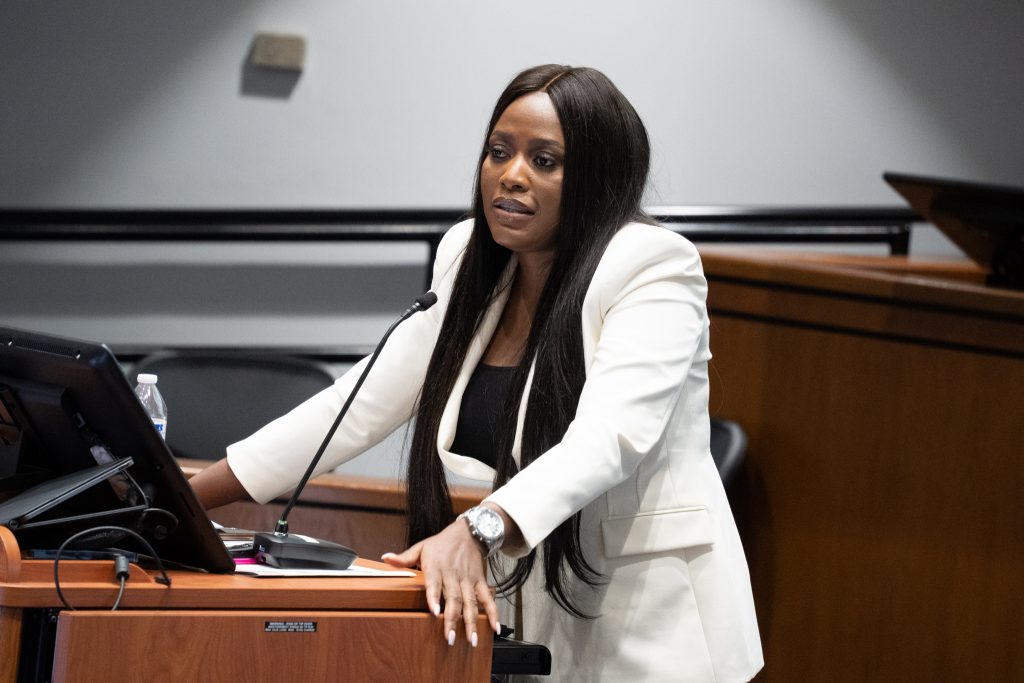
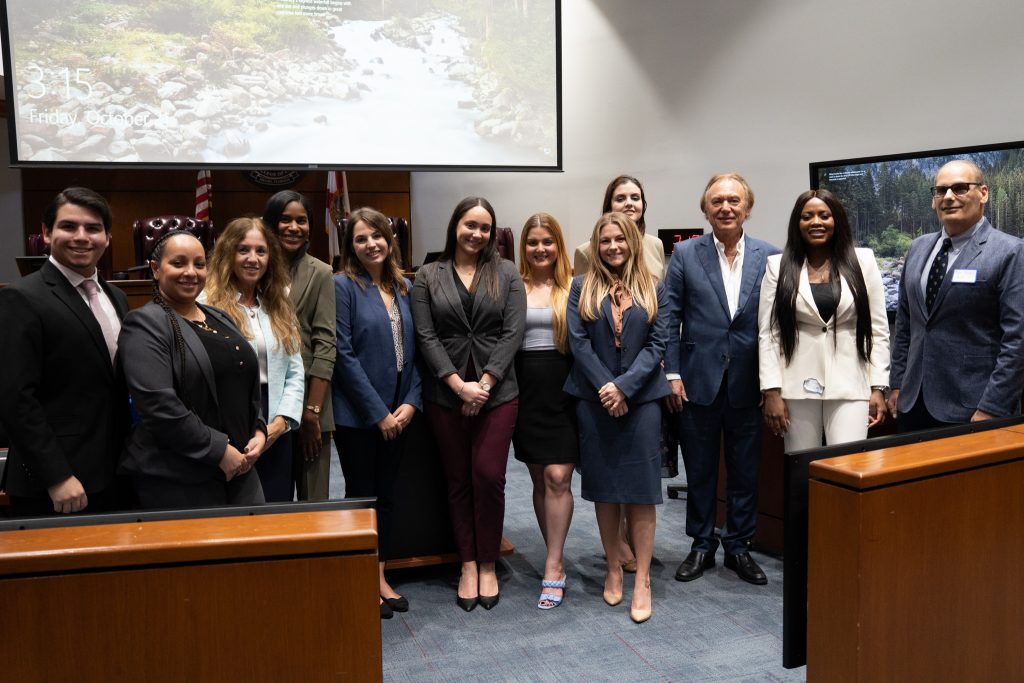
Founded in 2006, the Intercultural Human Rights Law Review is an annual journal of cultural human rights scholarship affiliated with the St. Thomas University Law School and its Intercultural Human Rights Program. The journal is committed to exploring new directions and perspectives and providing resources for scholars, policymakers, and practitioners. Its mission extends beyond publication. The journal strives to facilitate activism and outreach as well as scholarship. In furtherance of this goal, they sponsor numerous probing discussions and debates on a wide variety of intercultural human rights issues, and host the annual symposium focused on a specific topic related to intercultural and human rights law.

